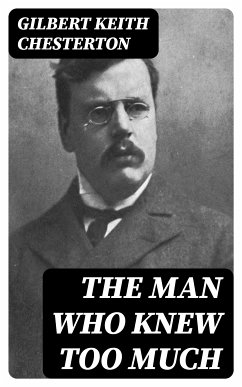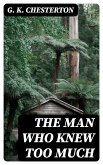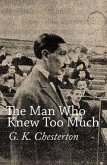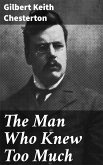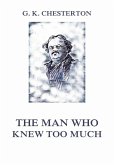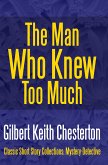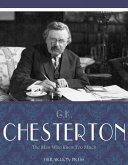In "The Man Who Knew Too Much," G.K. Chesterton crafts a compelling collection of short stories that intertwines mystery, philosophy, and social commentary. The book features the adventurous detective work of Horne Fisher, a character whose acumen transcends mere crime-solving as he grapples with moral complexities and the enigmatic nature of truth. Chesterton employs a distinctive narrative style characterized by wit, paradox, and rich imagery, which reflects the intricacies of Edwardian society and its psychological undercurrents. The stories push the boundaries of the detective genre, inviting readers to ponder the deeper implications of knowledge and ignorance, making it both a thrilling and intellectually stimulating read. A prolific writer known for his defense of faith and critique of modernity, Gilbert Keith Chesterton was profoundly influenced by his surroundings and the philosophical debates of his time. His background as a journalist and essayist dedicated to exploring social justice shines through in this work, where Fisher often finds himself navigating moral dilemmas indicative of early 20th-century anxieties. Chesterton's own explorations of spirituality and human nature are intricately woven into the fabric of the narrative. "The Man Who Knew Too Much" is highly recommended for readers seeking to engage with a layered narrative that challenges conventional notions of justice and morality. Chesterton's ability to intertwine thrilling detective elements with profound philosophical inquiries offers a unique reading experience that resonates well beyond the genre, making it an essential addition to any literary collection.
Dieser Download kann aus rechtlichen Gründen nur mit Rechnungsadresse in A, B, BG, CY, CZ, D, DK, EW, E, FIN, F, GR, H, IRL, I, LT, L, LR, M, NL, PL, P, R, S, SLO, SK ausgeliefert werden.

